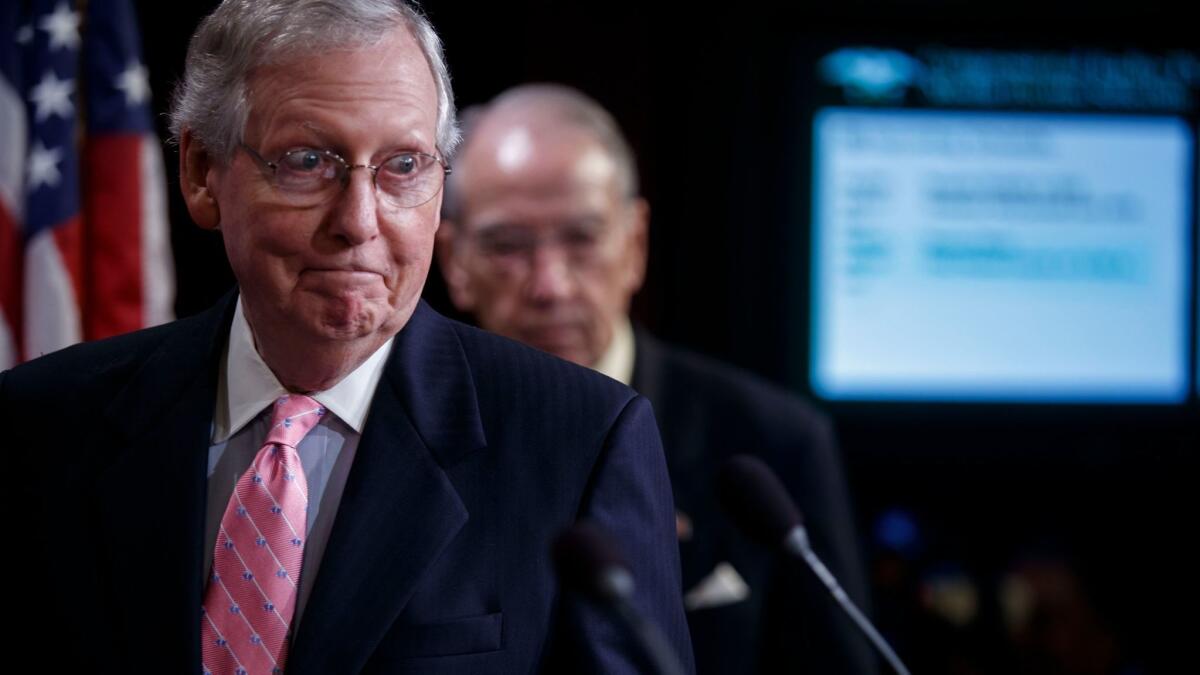Op-Ed: Conservatives played the long game. Will they benefit in the long run?

- Share via
The veneer of non-partisan neutrality surrounding the Marble Temple has been wearing thin for decades. But the bitterly partisan events leading up to the Brett Kavanaugh confirmation vote took a sledgehammer to it. The institution and its political scaffolding have been exposed in ways unseen since the 1930s, when President Franklin Roosevelt threatened to pack the Supreme Court with party loyalists, provoking a constitutional crisis.
Certainly, the Supreme Court as an institution does not benefit from being exposed in this way. As Chief Justice John Roberts said during his own confirmation hearing, judges are supposed to be like umpires who call balls and strikes. If Americans believe the game is rigged, that calls into question the court’s legitimacy and even the legitimacy of the rule of law.
We’ve been brought to this point by a decades-long movement, led by the Federalist Society, to install conservative jurists at all levels. But paradoxically, they may have just as much to lose in the fallout.
The Federalist Society has built its brand on pushing originalism — the theory that judges ought to find and apply the original public meaning of the constitution — as a professedly non-partisan, non-political way to adjudicate. They have railed against what they saw to be the naked political ambitions and “judicial activism” of courts since the 1960s. But most importantly, the Federalist Society has, behind closed doors, subtly and quietly influenced the composition of the federal judiciary that is the current pipeline to the Supreme Court.
Enter the Fray: First takes on the news of the minute from L.A. Times Opinion »
Having now revealed themselves as the proud public face of the Trump administration’s judicial selections, the Federalist Society’s actions might help prompt reforms of the system they have been exploiting.
In the long run, the biggest beneficiaries of the court’s politicized turn may be the reformers who have long sought and failed to get political support for 12- or 18- year term limits on federal judges. Opponents of such reforms called this an assault on the judiciary and an unjustified political intervention into a non-political institution. Now that this myth has been shattered, it is time to take reform seriously.
Amanda Hollis-Brusky is the author of “Ideas with Consequences: The Federalist Society & the Conservative Counterrevolution” and professor at Pomona College.
This piece is part of a series on what’s next for the Supreme Court. Click here to read more.
Follow the Opinion section on Twitter @latimesopinionand Facebook
More to Read
A cure for the common opinion
Get thought-provoking perspectives with our weekly newsletter.
You may occasionally receive promotional content from the Los Angeles Times.










